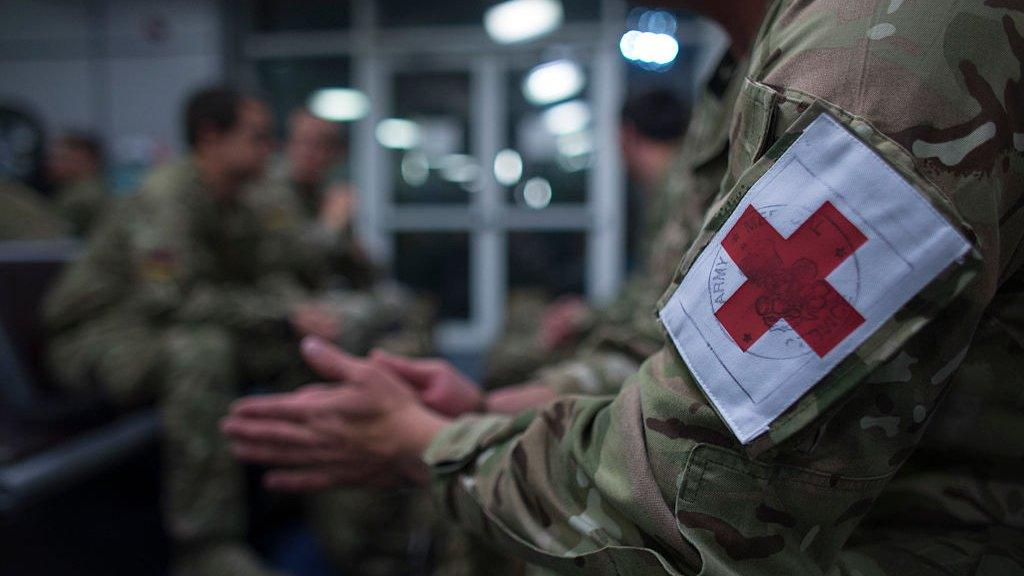Coronavirus: NI health staff braced for expected Covid-19 surge
- Published

Senior medics have issued a stark Covid-19 warning as health staff brace themselves for a predicted surge in coronavirus cases this weekend.
On Saturday, 12 further deaths with Covid-19 were recorded by the Department of Health, taking its death toll to 1,716.
Another 670 people tested positive for the virus.
There are 810 people in hospital with Covid-19, of which 66 are in intensive care.
Dr Thelma Craig, a respiratory consultant at Belfast's Mater Hospital, said that more patients are being hospitalised in this wave of the virus.
It is affecting younger people too.
"We are seeing people coming in with very little past medical history - coming in, in respiratory failure, desperately unwell," Dr Craig told BBC News NI.
Yet doctors are hearing the same phrases time and again: "I didn't think I could get this virus. I didn't think it was this bad. I had no idea what the hospitals had to deal with."
Revised Department of Health data shows the number of hospital in-patients hit a record high on 13 January with 997 men and women being treated for Covid-19.
Admissions to ICU have also risen in recent weeks with 72 people currently fighting for their lives.
Dr Craig added: "We have had to have a lot of very difficult conversations in very difficult situations when patients are very unwell.
"Then we have to have very difficult conversations with family members, as well explaining what has happened despite all best efforts."
'Fear of being overwhelmed'
Although pressures of what lie ahead are daunting, doctors insist they will cope.
"The fear is that we are going to be overwhelmed," said Dr Craig.
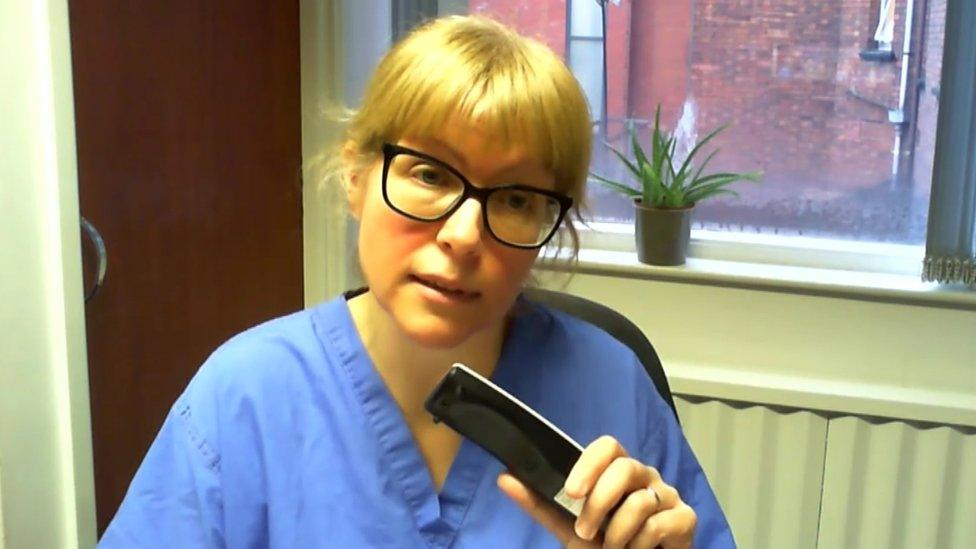
Respiratory consultant Dr Thelma Craig said the virus has been affecting younger age groups
"But we have experience; we have medicines; we have to make sure that the right patients get the right treatments in the right place and that's what we are aiming to do.
"We have enough capacity for beds; no issues with oxygen supply; we have the drugs available in the cupboard; we have plenty of CPAP (continuous positive airway pressure) machines.
"Difficult decisions always have to be made in medicine.
"But as the pressure increases it's difficult to say what exactly will happen."
Limits
Health officials have said the system is pulling together like never before.
But it's a system that has been lurching from one crisis to the next for the past decade.
The pausing of urgent cancer surgeries and the arrival of the Army only serve to highlight the scale of the problems compounded by Covid-19.
And while treatments mean better chances of survival, they also mean hospitals are stretched to the limit and, at times beyond.
Dr Craig said: "I have spoken to lots of patients over the last few weeks where thankfully they have done well.
"They have been very unwell on admission to hospital, they have been on CPAP - big masks strapped to their face for over 20 hours a day - it's really very distressing, it's very difficult for them.
"And when you talk to the patients when they recover - the striking thing is they all say, I didn't think I could get this virus.
"I didn't think it was this bad - I had no idea what the hospitals had to deal with and I felt so bad, I just wanted to die."
Increase in inpatient numbers
Meanwhile, at Belfast's Nightingale Hospital, where some of the most seriously ill are being treated, there have been 20 new admissions this week.
Consultant Dr Paul Glover said: "Pressures are huge.
"We are anticipating that the number of inpatients will increase over the next number of days.
"We don't know how many patients we are going to have to manage.
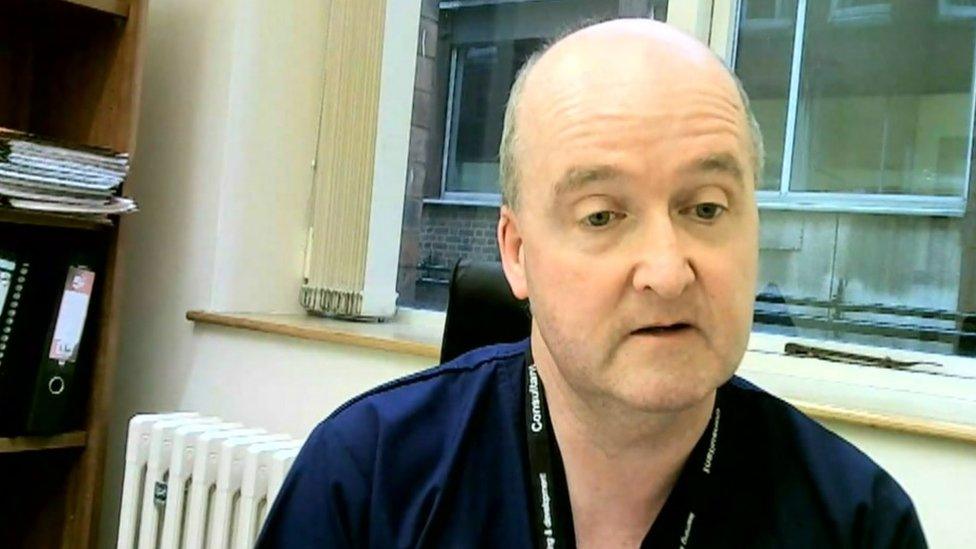
Consultant Dr Paul Glover said admissions are rising at Belfast's Nightingale Hospital
"Many of the staff have been re-deployed so they are working in an environment they are not normally used to working in.
"They are working in a clinical area they're not used to working in; equipment they wouldn't normally work with on a day to day work plus everyone is wearing PPE so it's harder to identify people."
And off the wards, medical professionals are having to cope with same pressures as everyone else.
Dr Glover added: "There's home schooling, partners not working. They have all those anxieties too.
"Staff are frequently being asked to cover colleagues at short notice.
"So day to day planning can be all over the place as well.
"But the professionalism shown by staff stepping forward and meeting these challenges, as difficult as they are, is a testament to all the healthcare staff that we have."
Related topics
- Published15 January 2021
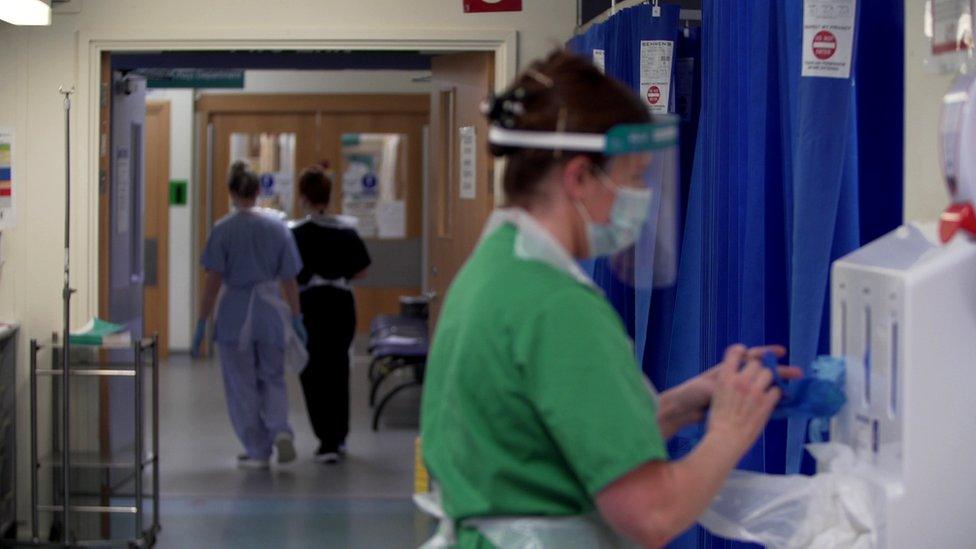
- Published22 January 2021
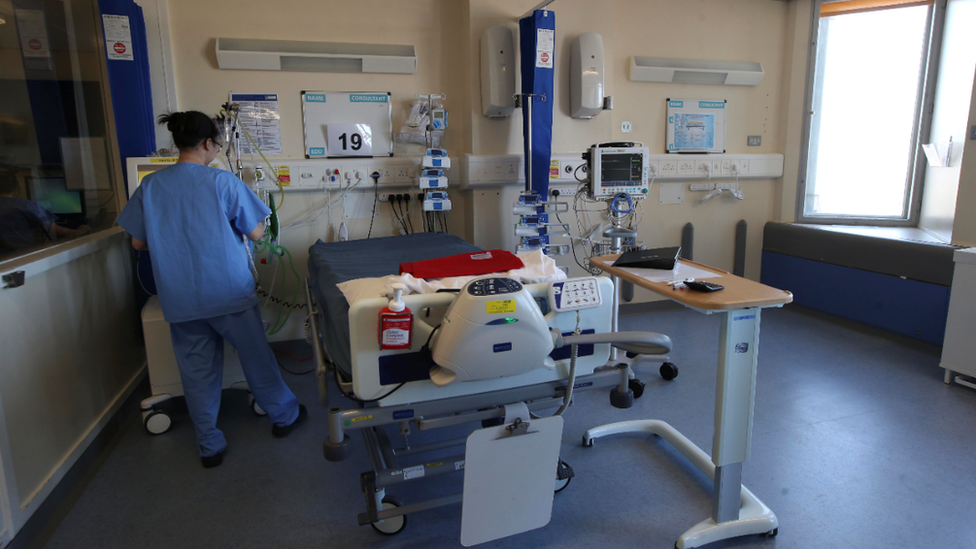
- Published20 January 2021
